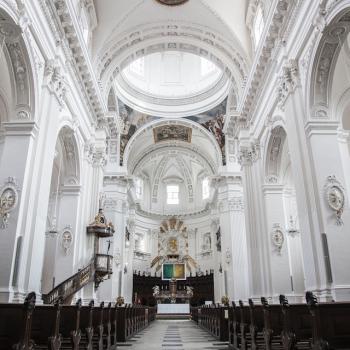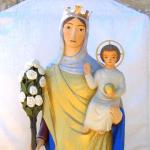
Marcus Woodbridge / Unsplash
The Book of Jonah is one of the shortest and one of the most famous chapters in the Bible. It tells the story of a prophet named Jonah who tries to run away from his God-given duties and finds himself trapped in the belly of a whale. However, the second half of the story doesn’t get nearly as much attention.
There are many important lessons from the Book of Jonah, including about the sun. Here’s a quick run through Jonah’s story and a deeper dive into the sun’s role.
The Book of Jonah — A Summary
Jonah is one of the 12 minor prophets that have their own book in the Old Testament. The story begins with Jonah preaching in Israel. He is well-liked in the Promised Land and doesn’t plan on leaving. That changes when God commands Jonah to travel to the Assyrian city of Nineveh, which was known for its crime and debauchery.
Jonah does not accept God’s command. He flees Israel by boat in an attempt to escape his responsibilities but gets caught in a storm. Jonah abandons ship and is swallowed by a whale. After three days, the whale spits him up on a shoreline near Nineveh.
Jonah decides to go forward and preach to the Ninevites. He tells them that God would destroy their city if they did not change their ways. The people repent for their sins, but Jonah still dislikes them and expects God to destroy the heathen city anyway.
When God does not destroy Nineveh, Jonah becomes angry and waits outside the city, expecting God to change His mind. He builds a crude shelter, but it offers little protection from the blazing sun and blistering heat. God allows a vine to grow above Jonah’s shelter and give him more shade. Jonah rejoices and decides to wait a little longer.
Once again, God punishes Jonah and sends a worm to eat the vine and expose Jonah to the sun. Just as he begins to succumb to the heat, Jonah gets the message. If he deserves salvation from the sun, then the people of Nineveh also deserve to be saved.
Lesson One: Be a Willing Vessel
Jonah might have been one of God’s chosen prophets, but he wasn’t always a willing participant. In the Book of Jonah, we can see that he hesitates to follow God’s commands if he disagrees with them. He abandons his religious duties as soon as things don’t go his way, which leads him down a path of suffering.
We can observe a similar trend today with the rapid decline of Christianity in the United States, especially among younger generations. Many people decide they are not Christians anymore. There are many reasons behind this spiritual exodus, and one of them is a simple lack of convenience. Being a devout follower of God is not always convenient. Indeed, sometimes it can be painful.
Jonah chose convenience over responsibility and paid dearly for it. He was unscathed after escaping the belly of the whale, but he didn’t learn. He finally saw the error of his ways as he lay dying from sun exposure. Near-death experiences often lead to spiritual awakenings regardless of someone’s religious background.
The meaning of sunburn in the Bible is about accepting your duty and being a willing vessel. We are finite beings made of flesh and blood. We can’t escape God. Once Jonah got a taste of the sun and realized he wasn’t invincible, he was able to accept that reality. All Christians must experience a degree of suffering to find peace with God’s plan.
Lesson Two: Have Compassion
Compassion is the most obvious lesson from the Book of Jonah. As Jonah lay dying at the end of the chapter, he realized he was wrong to wish death upon the Ninevites. It took a healthy dose of suffering for him to find compassion for other people. Since he was so concerned about his own well-being, he could show the same concern for the Ninevites.
Although Jonah isn’t a very sympathetic character, the reader should have compassion for him as well. He’s an imperfect human being, just like everyone else. Many of us would’ve fared much worse in his situation. He would have a high risk of skin cancer and likely experience premature aging, and nobody deserves to suffer such a fate.
It’s also worth noting that the Assyrians were a brutal group of people during their reign of power. Nineveh was a stronghold of sin and deserved some punishment. However, it’s not ours to give. God is the arbiter of punishment. Instead, we should have compassion for our fellow man and leave the ultimate judgment to God.
Lesson Three: Sometimes It’s Best to Do Nothing
At the end of the chapter, Jonah sat back and waited for God to punish the Ninevites. Doing nothing almost led to his death but also allowed him to contemplate the situation. He slowly but surely realized his mistake. Sitting in silence and solitude is a great way to recalibrate your mind and create a moment of clarity — which is exactly what happened to Jonah.
Jesus also did nothing during his 40 days in the wilderness. Instead of listening to Satan’s temptations and seeking relief, Jesus remained steadfast. He tolerated the pain and suffered in silence, trusting in God’s deliverance. He also knew that the pain of sunburn and heat exhaustion were nothing compared to the pain he would experience during the Passion.
Indeed, the only reason Jesus’s death and resurrection happened was that he didn’t resist his fate. “And when he was accused by the chief priests and elders, he answered nothing” (Matthew 27:12).
The Sun Leaves Us Exposed
The Book of Jonah demonstrates that a little sun exposure can go a long way. The meaning of sunburn in the Bible can have different interpretations, but it was clearly a much-needed wakeup call in Jonah’s case. The sun made him vulnerable and weak, which is often the necessary condition we must reach to accept our responsibilities as God’s children.













